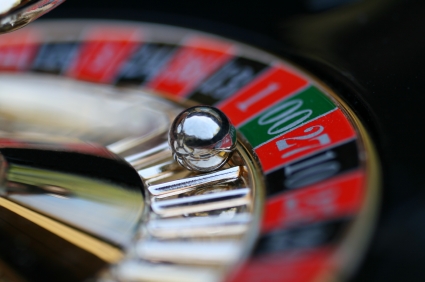
Drum roll, please.
After 4 years in medical school, 4 years of internship and residency, the single most important thing I learned had nothing to do with physiology, sophisticated tests, or complex surgical procedures. The most important thing I learned is …
Some people have good luck and some people have bad luck.
I was reminded of it yet again while reading Michael Winerip’s piece, My Heart Messed With My Head, in yesterday’s New York Times. Winerip writes about his efforts to avoid his family history of heart problem, and his recent angioplasty to clear a blocked coronary artery:
I’m … confused. I’ve had so many advantages my father’s generation did not — medication, diet, exercise, not smoking — and yet, my first heart episode came at almost the same age as Dad’s.
It’s not surprising that Winerip is confused. The deeply entrenched conventional wisdom about health is that our health is under our control. Eat right, exercise a lot, practice preventive care measures, and you can live virtually forever. The dirty little secret is that our health is not under our control. The single most important factor is the one that people don’t want to talk about: luck
No one wants to die, so we have created the comfortable fantasy that preventing death is within our power as individuals. We pretend that we can prevent cancer and heart disease. We pretend that most health problems are caused by behaviors like smoking and drinking alcohol to excess. We pretend that the bad things that happen to other people won’t happen to us because we don’t smoke, we don’t drink, we eat right and get plenty of exercise.
The sad and scary fact is that many aspects of our health are beyond our control. Even the behaviors that have been demonized, like smoking and drinking, are not as amenable to control as we like to pretend. Most adults who are smokers wish that they could stop. Most alcoholics are filled with self-loathing about their drinking. They don’t stop those behaviors because they are addicted, and addiction, too, can be a matter of luck.
Winerip asks Dr. Alice Jacobs, cardiologist and professor of medicine, why he hasn’t been able to avoid heart disease even though he did everything that was supposed to prevent it.
Innovations that boomers like me have benefited from — cholesterol drugs (20 years); blood pressure medication (25 years); stress test/nuclear scan (25 years); stents (15 years); medicated stents (5 years) — have all most likely contributed to improved mortality rates, Dr. Jacobs said.
In 1950, according to the Centers for Disease Control and Prevention, 587 Americans per 100,000 died of heart disease; by 2006, the number was 200…
But on the micro level, individual by individual, it’s more fuzzy. “You can modify the major risk factors, but you can’t modify family history,” Dr. Jacobs said. The presence of coronary disease in a close relative younger than 55 for men increases heart disease risk.
In other words, Winerip could not escape the bad luck of having a strong family history of heart disease.
The deeply held conviction that most if not all disease can be prevented by personal behavior strikes me as the updated version of old belief that disease is God’s punishment. Both are medical versions of blaming the victim. The person who is sick deserves to be sick, either because God willed it or because he brought it upon himself by his own bad behavior.
But Michael Winerip did not cause his own heart disease and he could not prevent it. That’s because our genes are not under our control. He was unlucky to have a family history of heart disease and he could not escape it, not matter how fast or how far he ran.
Of course behaviors can be risk factors, and those risk factors should be modified whenever possible, but most diseases are not caused by modifiable risk factors. Genetics, or viruses, or bacteria, or other non-modifiable factors cause them. Despite the ongoing hysteria over environmental causes of cancer, it is almost certain that cancer is caused by genetic errors that are inherited or occur naturally as a result of living a long life. People do not get multiple sclerosis, juvenile diabetes, polycystic kidney disease or a plethora of other diseases because of their behavior. They get them because they have bad luck.
It’s time to give up the notion that people “deserve” their illnesses and that the rest of us can prevent illness if we just try hard enough. We should stop taking credit for good health, and thank our lucky stars.

